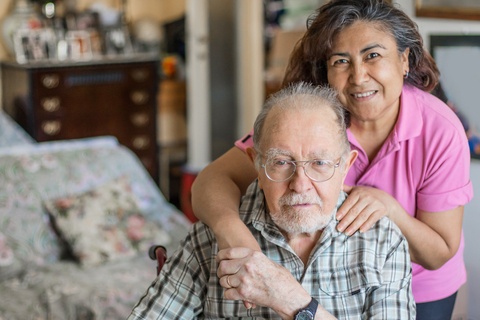Understanding Symptom Burden in Palliative Care

Palliative care is pivotal in improving the quality of life for patients with life-threatening illnesses like mesothelioma. But, understanding the spectrum of symptoms patients experience is crucial for providing effective care.
Palliative care is a medical specialty. It focuses on easing pain and other life-limiting symptoms. Palliative care is often associated with the end of life, symptom management, and holistic support.
Symptoms Burden
Researchers studied the symptom burden in elderly male patients getting palliative care. They looked at views from patients, caregivers, and doctors.
The study included 100 elderly male patients in a palliative care unit. It covered those with cancer and other illnesses. The team used the Memorial Symptom Assessment Scale (MSAS-SF) for the symptom check.
Patients with mesothelioma reported the most symptoms. This highlights their unique challenges. The study underlined the need to identify patients needing more symptom care.
Implications for Care
The study highlighted the importance of custom care for palliative patients. It should meet their various needs. Regular symptom checks are key. They guide better care and boost the quality of life for patients and families.
Future studies should dive into symptom challenges in palliative care. They’d look at how diagnoses and other conditions affect these issues. Understanding symptoms better will improve care. Elderly men in palliative care face high symptom loads. They need special care. By focusing on everyone’s needs, healthcare teams can enhance life quality.
For Caregivers of Patients Entering Palliative Care
Caregivers of mesothelioma patients in palliative care should understand the challenges and symptoms. They include shortness of breath, pain, and reduced eating. Knowing these symptoms helps caregivers meet their loved ones’ needs.
Open communication with healthcare providers is key. It helps in creating personalized plans for managing symptoms. Caregivers should also look after their well-being. They can seek support from care teams, groups, and other caregivers.
A holistic approach to caregiving is vital. It supports the patient and caregiver both physically, emotionally, and socially. This approach improves their lives during palliative care.
Source:
Elsawy, Amira Reyad, Hesham Moasad Elbehery, Hala Samir Sweed, and Aya Mostafa Sayed. “Symptoms Burden In Elderly Male Patients Receiving Palliative Care …” The Egyptian Journal of Geriatrics and Gerontology, April 17, 2024, 114–31. https://doi.org/10.21608/ejgg.2024.267201.1113.





